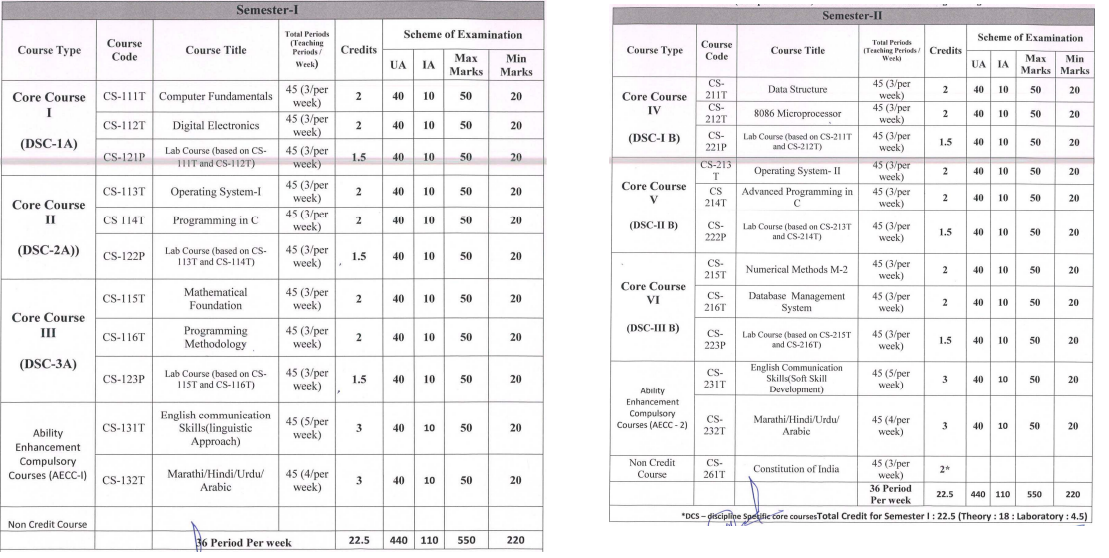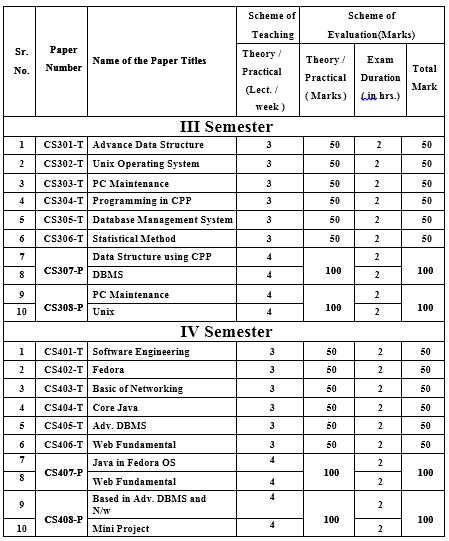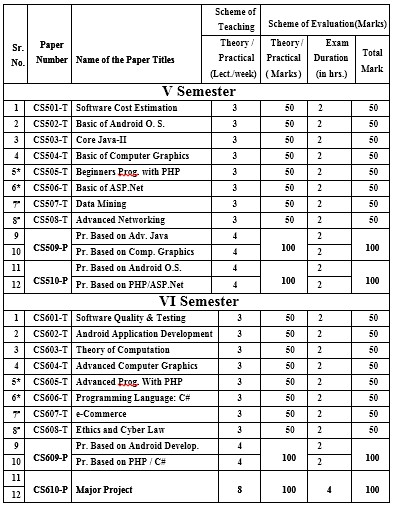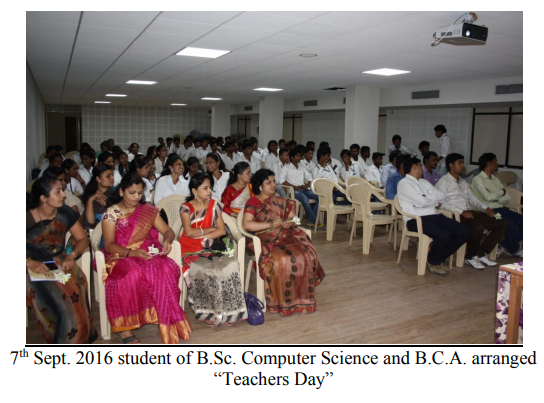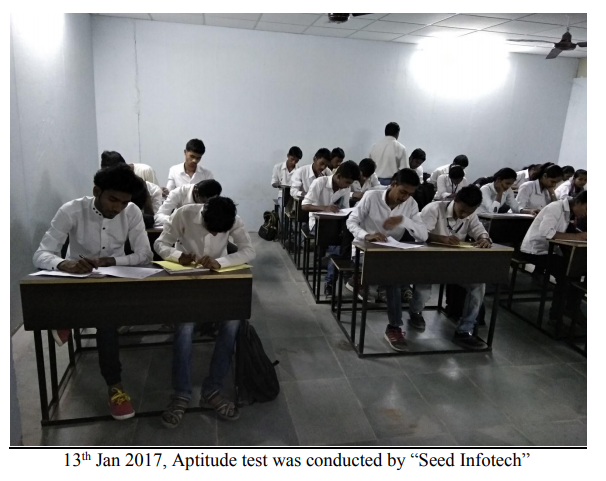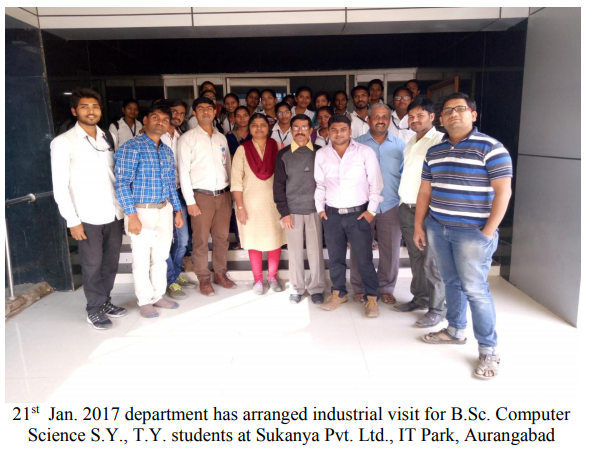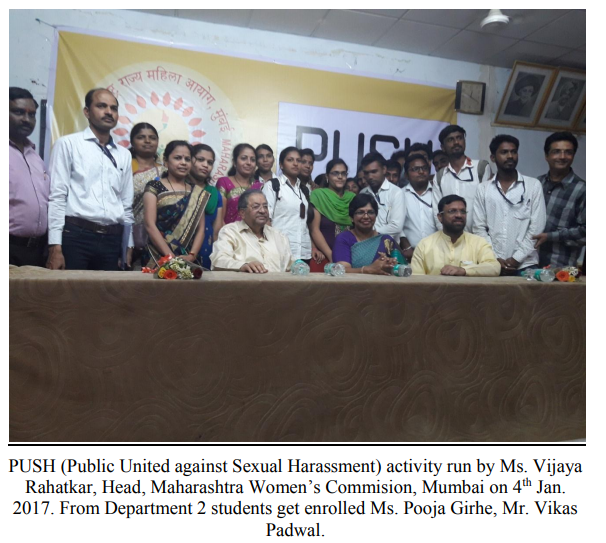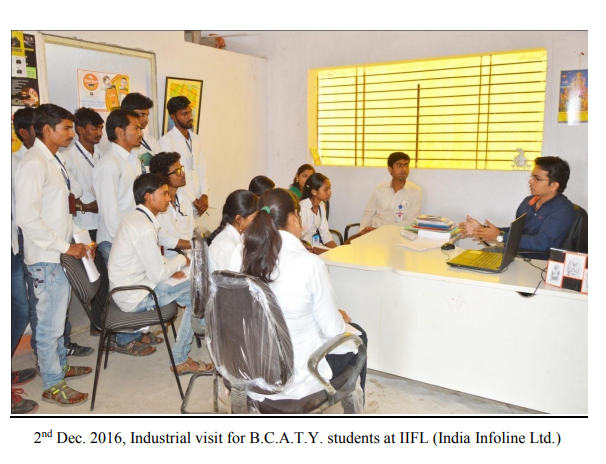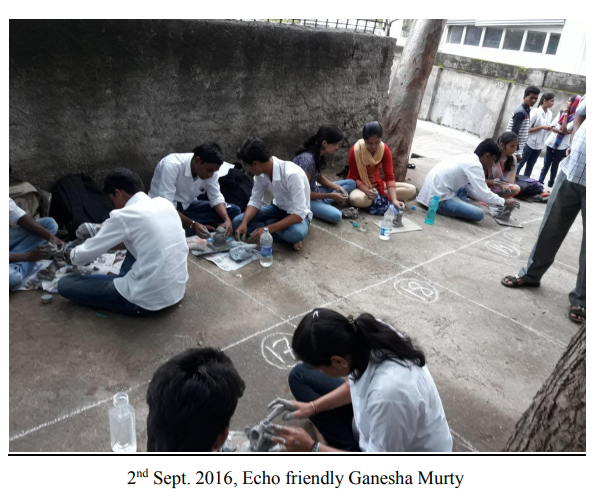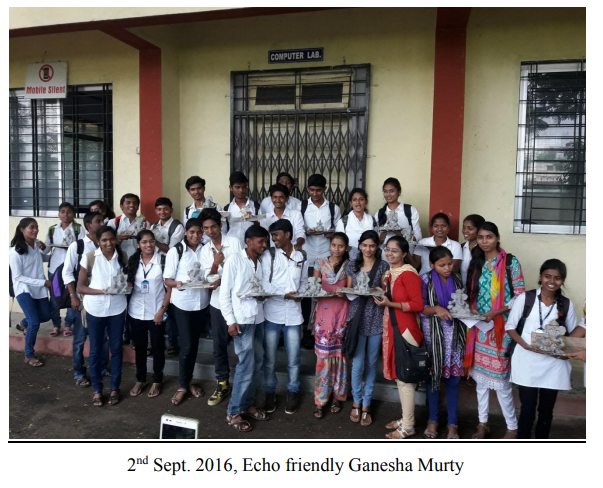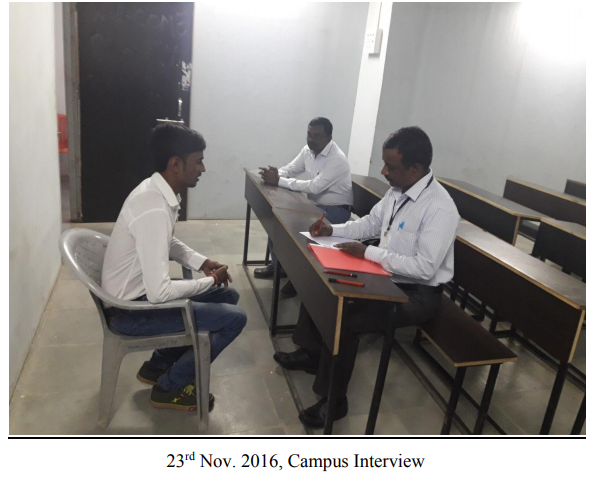Departmental Activity
Departmental Schedule
- Mon - Tues :
10.00 am - 05.00 pm
- Wednes - Thurs :
10.00 am - 05.00 pm
- Fri :
10.00 am - 05.00 pm
- 2'nd & 4'th Sat.
Open
- Sun :
Colosed
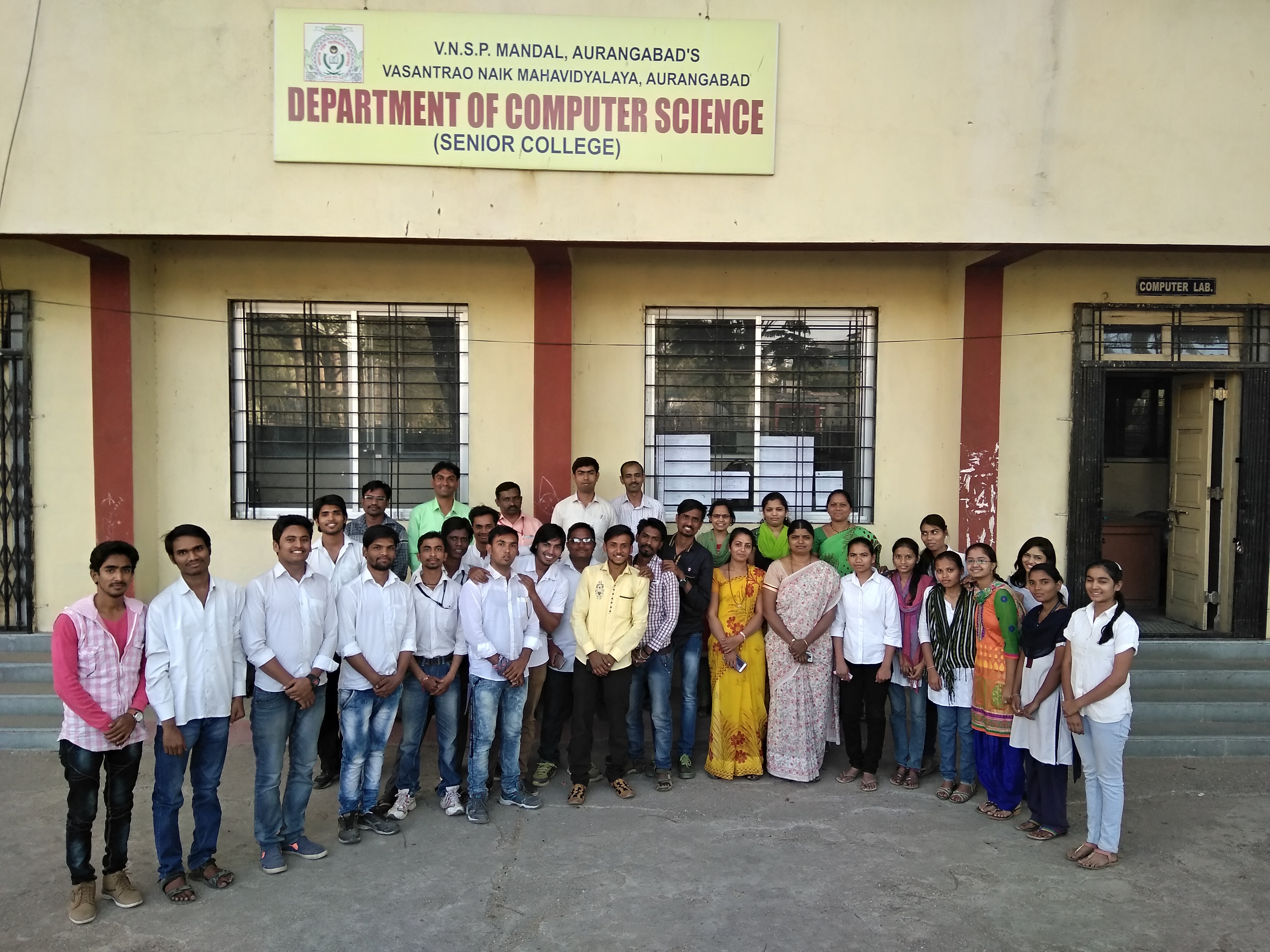
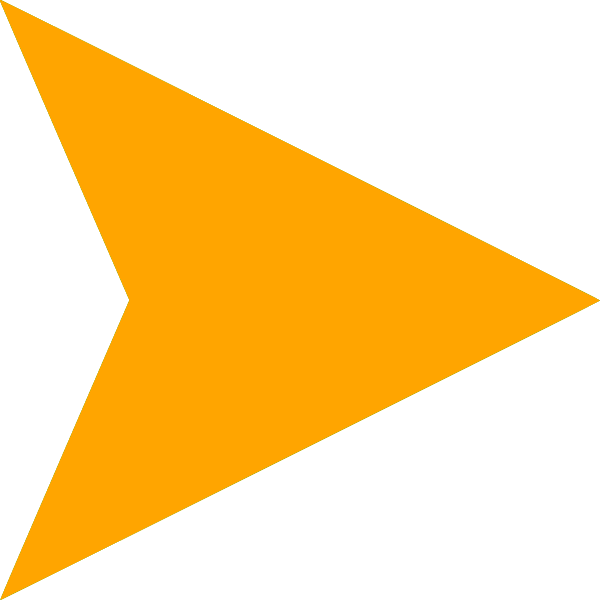 About Department
About Department
 Syllabus
Syllabus
Teaching Syllabus
 Programme Outcomes
Programme Outcomes
PO-CO-PSO
The Department of Computer Science offers programs of study related to computing, information technology and software design and application.
| Course | Course Outcomes |
|---|---|
| Programme Outcome | 1. A degree in B.Sc. Computer Science puts a good platform for fundamentals of Computer Science, becomes a stepping stone student’s professional career.
2. Computer Science having a dynamic subject, demand frequent updating of syllabus and synchronous the student with need of industry. 3. Serve as the IT Officers in Banks and cooperative societies. Work as Consultant and Management officers for system management, IT Sales and Marketing person, serve as the Web Designers with latest web development technologies. |
| Program Specific Outcome | 1. All theoretical concepts are implemented in practical which make a student industry ready.
2. Content of the course prepare a student for self-entrepreneurship. 3. The course is designed to support automation and digitization in all walks of life. 4. The ability to understand, analyse and develop software programs in the areas related to system software, multimedia, web design, application program, database, graphics and networking for efficient design of technology of varying complexity. |
| CS101-T -Computer Fundamentals | 1. On successful completion of this subject the students have overall introduction to Computer Hardware.
2. Understanding the concept of input and output devices of Computers and how it works and recognize the basic terminology used in computer programming |
| CS102-T -Digital Electronics | Design and analyze of electronic circuits
2. Evaluate the working of digital circuits such as register, filp flop, etc... response to understand behaviour of Electronics circuits |
| CS103-T -MicroprocessorI |
1.Assess and solve basic binary math operations using the microprocessor
and explain the microprocessor internal architecture and its operation
within the area of manufacturing and performance.
2. Apply knowledge and demonstrate programming proficiency using the various addressing modes and data transfer instructions of the target microprocessor. 3. Analyze assembly language programs |
| CS104-T -C Programming - I |
On successful completion of this subject the students have the knowledge about
S/W and what are the languages to develop that. 2. Understand the fundamentals of C programming including programming ability. 3. Choose the loops and decision making statements to solve the problem. 4. Implement different Operations on arrays. |
| CS105-T Communication Skill-I |
1. Understand the process of communication and its effect on giving and receiving
information. 2. Learn about historical and theoretical developments in the field of communication. 3. Apply effective communication skills in a variety of public and interpersonal settings. 4. Develop analytical, research, and organizational skills |
| CS106-T -Mathematical Foundation |
1.Ability to apply mathematical logic to solve problems. 2. Understand sets, relations, functions and discrete structures. 3. Able to use logical notations to define and reason about fundamental mathematical concepts such as sets relations and functions. 4. Able to model and solve real world problems using graphs and trees |
| CS201-T -Data Structure |
1. Select appropriate data structures as applied to specified problem definition.
2. Implement operations like searching, insertion, and deletion, traversing mechanism etc. on various data structures. 3. Students will be able to implement Linear and Non-Linear data structures, sorting/searching technique for given problem |
| CS202-T -Operating System |
1. Analyze the structure of OS and basic architectural components involved in OS
design. 2. Analyze and design the applications to run in parallel either using process or thread models of different OS. 3. Analyze the various device and resource management techniques for timesharing and distributed systems. 4. Understand the Mutual exclusion, Deadlock detection and agreement protocols of Distributed operating system. |
| CS203-T -Microprocessor - II | The students will be able to implement 8086 assembly language programming |
| CS204-T -C Programming - II |
. 1.To demonstrate the ability to design creative solutions to real life
problems faced by the industry. 2. Develops the use of the C programming language to implement various algorithms, and develops the basic concepts and terminology of programming in general. |
| CS205-T -Communication Skill - II |
1. To demonstrate his verbal and non-verbal communication
ability through presentations. 2. To stimulate their Critical thinking by designing and developing clean and lucid writing skills. 3. To demonstrate his verbal and non-verbal communication ability through presentations |
| CS206-T -Numerical Computation Method |
1.Apply various interpolation methods and finite difference concepts. 2. Work out numerical differentiation and integration whenever and wherever routine methods are not applicable. 3. Work numerically on the ordinary differential equations using different methods through the theory of finite differences. |
| CS301-T -Advance Data Structure |
1. To access how the choices of data structure & algorithm methods
impact the performance of program.
2. To Solve problems based upon different data structure & also write programs. 3. Choose an appropriate data structure for a particular problem. |
| CS302-T -Unix Operating System |
1.To have the ability to use a variety of common Unix commands and utilities. 2. To have the ability to execute shell commands interactively and write shell scripts for at least two Unix Shells. 3. Be familiar with basic Unix communications and networking commands. |
| CS303-T -PC Maintenance |
1. Introduced to a variety of operations and maintenance techniques, as well as
safety and anti-virus procedures. 2. Able to install and add operating system software and hardware, customize operating features, configure networks and provide basic PC support services. 3. Personal Computer (PC) maintenance and repair, such as hardware and software installation, system optimization and basic troubleshooting. |
| CS304-T -Programming in CPP |
1.Be able to understand the difference between object oriented programming and
procedural oriented language and data types in C++. 2. Be able to program using C++ features such as composition of objects, Operator overloading, inheritance, Polymorphism etc. 3. At the end of the course students will able to simulate the problem in the subjects like Operating system, Computer networks and real world problems. |
| CS305-T -DBMS |
1.Understand, analyze and apply common SQL statements including DDL, DML and DCL
statements to perform different operations. 2. Design different views of tables for different users and to apply embedded and nested queries. 3. Design and implement a database for a given problem according to well known design principles that balance data retrieval performance with data consistency |
| CS306-T -Statistical Method |
1.Organize, manage and present data. 2. Analyze statistical data graphically using frequency distributions and cumulative frequency distributions. 3. Analyze statistical data using measures of central tendency, dispersion and location. 4. Identify the type of statistical situation to which different distributions can be applied. |
| CS401-T -Software Engineering |
1.Understand and demonstrate basic knowledge in software engineering. 2. Identify requirements, analyze and prepare models. 3. Plan, schedule and track the progress of the projects. 4. Design & develop the software projects. 5. Identify risks; manage the change to assure quality in software projects. 6. Apply testing principles on software project and understand the maintenance concepts. |
| CS402-T -Fedora |
1.Student get understand graphical environment which include GNOME and KDE. 2. Understand the features of Fedora with installation |
| CS403-T -Basic Of Networking |
1. To explain how communication works in computer networks and to understand the
basic terminology of computer networks. 2. To explain the role of protocols in networking and to analyze the services and features of the various layers in the protocol stack. 3. To understand design issues in Network Security and to understand security threats, security services and mechanisms to counter them. |
| CS404-T -Core Java |
4. Explore the Java programming language. 5. Work with Primitive Types, Strings and Interactive Input/Output. 6. Manipulate the Flow of Control, Design/Create/Use Classes and Methods,Manipulate Classes and Methods. 7. Program with Inheritance. |
| CS405-T -Adv. DBMS |
1. To understand the basic concepts regarding database, know about query
processing and techniques involved in query optimization and understand the
concepts of database transaction and related database facilities including
concurrency control, backup and recovery. 2. To understand the difference between DBMS and advanced DBMS and use of advanced database concepts and become proficient in creating database queries. |
| CS406-T -Web Fundamental |
1. Understand the functions of clients, servers, the HTTP protocol and HTML. 2. Be able to write a well-formed HTML page. 3. Be able to employ Cascaded Style Sheets. 4. Be able to create simple web forms and process them with PHP. 5. Understand elementary graph theory 6. Perform a simple analysis of the structure of the web. |
| CS501-T -Software Cost Estimation |
1. An ability to use the techniques, skills, and modern engineering tools
necessary for engineering practice. 2. An ability to identify, formulate, and solve engineering problems. 3. An ability to design a hardware and software system, component, or process to meet desired needs within realistic constraints such as economic, environmental, social, political, ethical, health and safety, manufacturability, and sustainability |
| CS502-T -Basic Of Android O.S |
1. Install and configure Android application development tools. 2. Design and develop user Interfaces for the Android platform. 3. Save state information across important operating system events. 4. Apply Java programming concepts to Android application development. |
| CS503-T -Core JAVA - II |
1. Implement object oriented programming concepts. 2. Use and create package and interfaces in a Java program. 3. Use graphical user interface in Java programs 4. Create applets. 5. Connect with DataBase with JDBC. |
| CS504-T -Basic of Computer Graphics |
1. Understand the basics of computer graphics, different graphics systems and
applications of computer graphics. 2. Discuss various algorithms for scan conversion and filling of basic objects and their comparative analysis. 3. Use of geometric transformations on graphics objects and their application in composite form. 4. Extract scene with different clipping methods and its transformation to graphics display device |
| CS506-T -Basic of ASP.Net |
1. Be able to design web applications using ASP.NET. 2. Be able to use ASP.NET controls in web applications. 3. Be able to debug and deploy ASP.NET web applications. 4. Be able to create database driven ASP.NET web applications and web services |
| CS508-T -Advanced Networking |
1. Demonstrate Data Communications System and its components. 2. Identify the different types of network devices and their functions within a network. 3. Diagnose and resolve problems of a LAN and WAN. 4. Familiarity with the basic protocols of computer networks, and how they can be used to assist in network design and implementation |
| CS601-T -Software Quality & Testing |
1. Apply modern software testing processes in relation to software development
and project management. 2. Create test strategies and plans, design test cases, prioritize and execute them. 3. Manage incidents and risks within a project. 4. Contribute to efficient delivery of software solutions and implement improvements in the software development processes. 5. To gain expertise in designing, implementation and development of computer based systems and IT processes. |
| CS602-T -Android Application Development |
1. Understand both the basic and advanced concepts of Android Development. 2. Explain and use key Android programming concepts. 3. Build Basic level mobile applications with Java on Android. 4. Deploy the application on Google Play |
| CS603-T -Theory of Computation |
1. Apply knowledge of computing and mathematics appropriate to the discipline.
2. Function effectively as a member of a team in order to accomplish a common goal. |
| CS604-T -Advanced Computer Graphics |
1. To make the students familiar with techniques of clipping, three dimensional
graphics and three dimensional transformations. 2. The computer graphics course prepares students for activities involving in design, development and testing of modelling, rendering, shading and animation |
| CS606-T - Programming Language : C# |
1. Knowledge of the structure and model of the programming language C #. 2. The programming language C # for various programming technologies. 3. Develop software in C # (application) |
| CS607-T -eCommerce |
1. Understand the basic concepts and technologies used in the field of
management information systems. 2. Be aware of the ethical, social, and security issues of information systems. |
 Teaching Staff
Teaching Staff
About Our Staff
The Department of Zoology offers programs of study related to Zoology, and its application. Zoology Science VNM
| Sr.No. | Faculty Name | Qualification | Designation | View Profile |
|---|---|---|---|---|
| 1 | ---- | ---- | ---- | Click Here |
| 2 | ---- | ---- | ---- | Click Here |
 Activity
Activity
Departmental Activity
Yearwise Departmental Activity Computer Science VNM-Abad
![]() Department of Computer Science :
Activities for the Year 2019-2020
Department of Computer Science :
Activities for the Year 2019-2020
Dr.Savita Lothe H.O.D.
Department of Computer Science
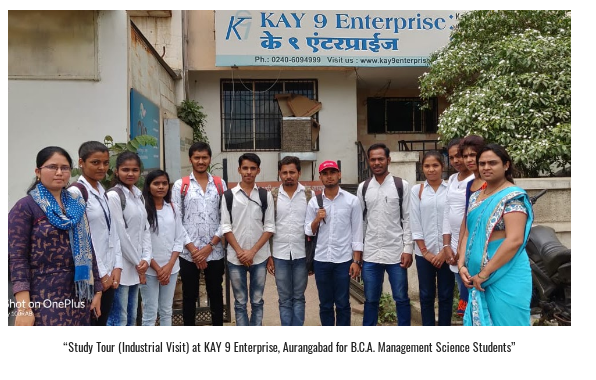
| 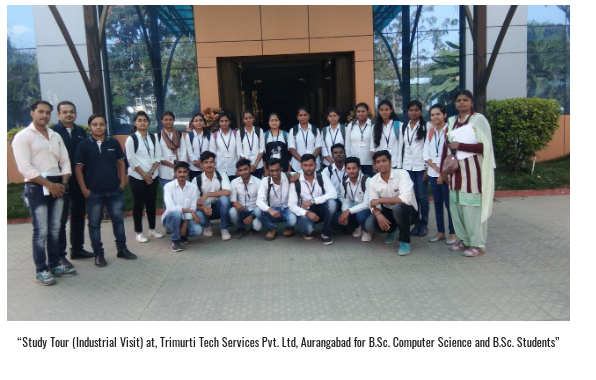
|
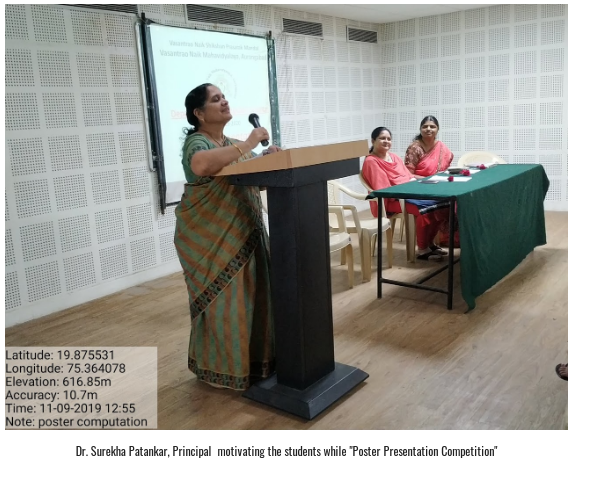
| 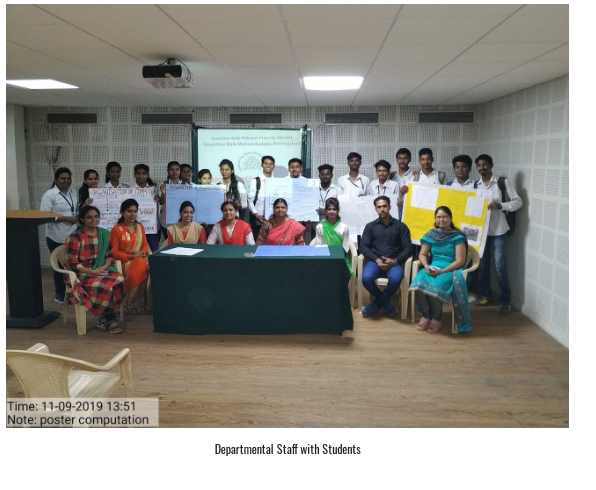
|
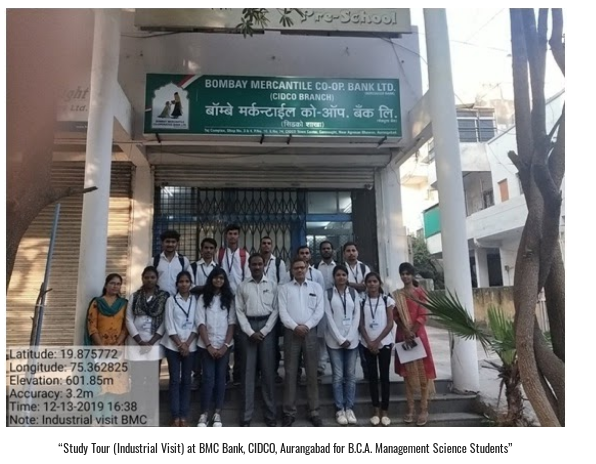
| 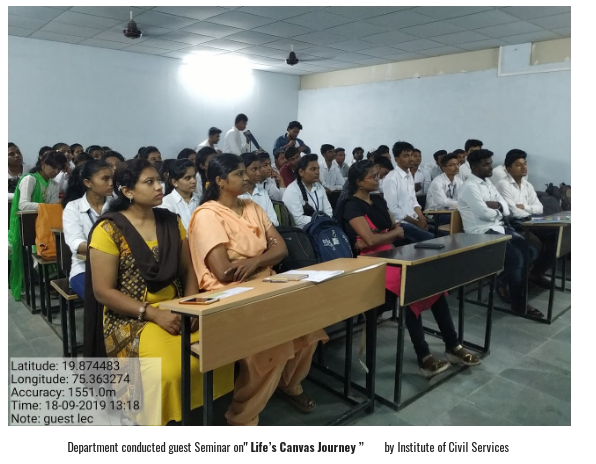
|

| 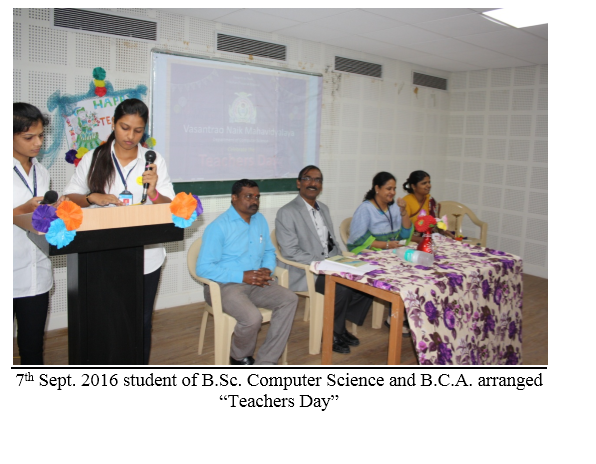
|
![]() Department of Computer Science
Activities for the Year 2018-2019
Department of Computer Science
Activities for the Year 2018-2019
Dr. Lothe Savita A.
H.O.D.
Department of Computer Science
View Activities here..
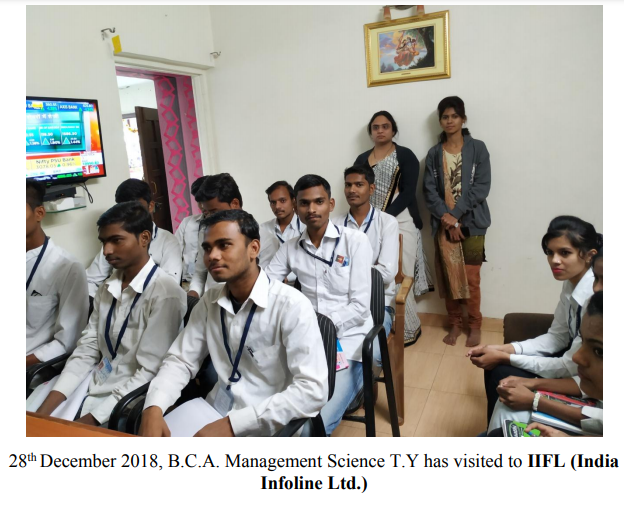
| 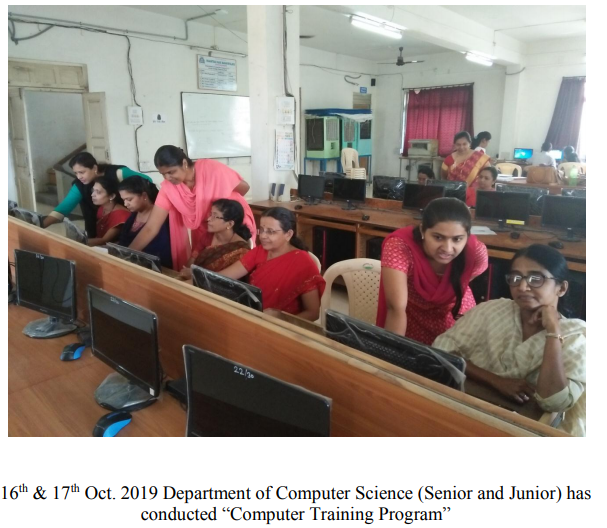
|
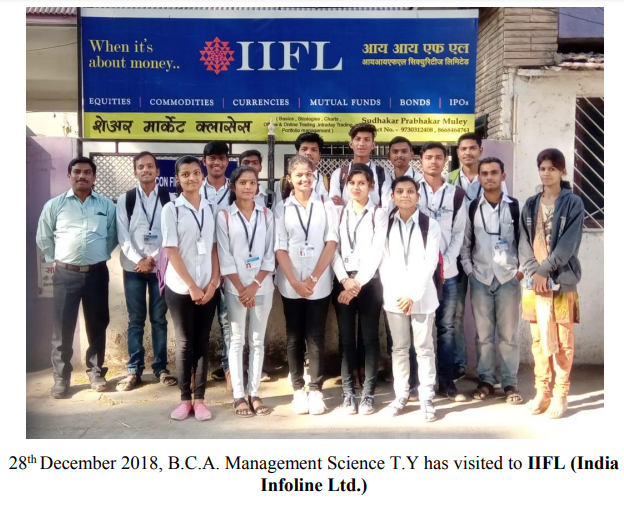
| 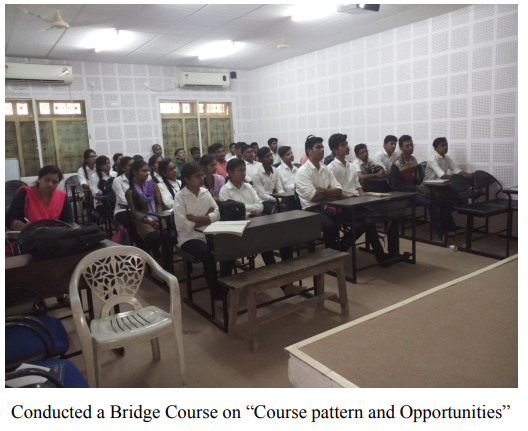
|
![]() Department of Computer Science
Activities for the Year 2017-2018
Department of Computer Science
Activities for the Year 2017-2018
Dr. Lothe Savita A.
H.O.D.
Department of Computer Science
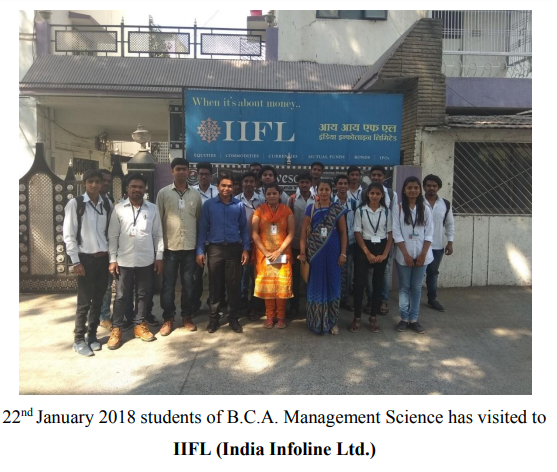
| 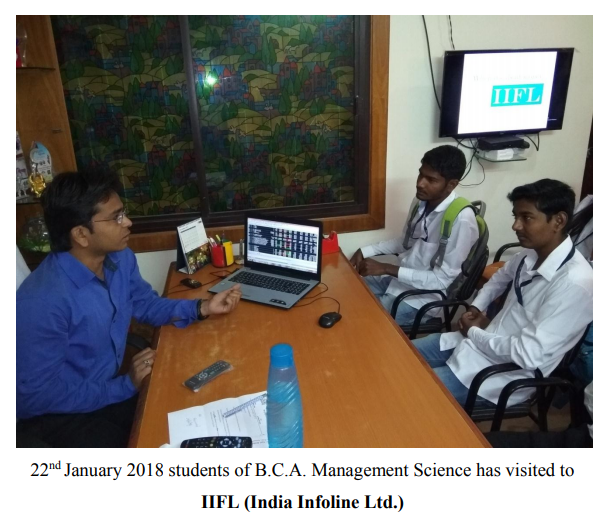
|
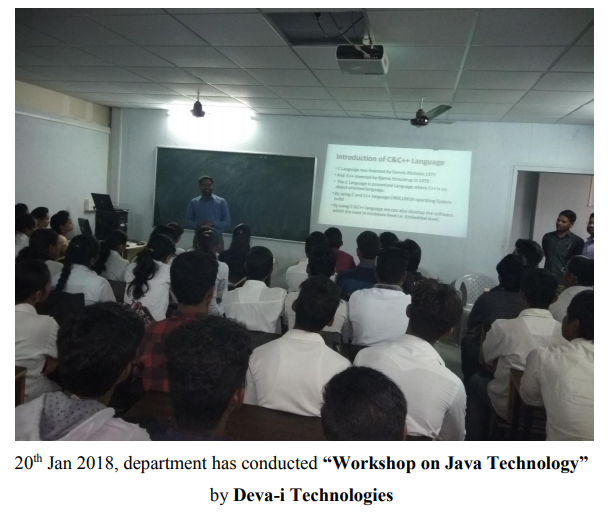
| 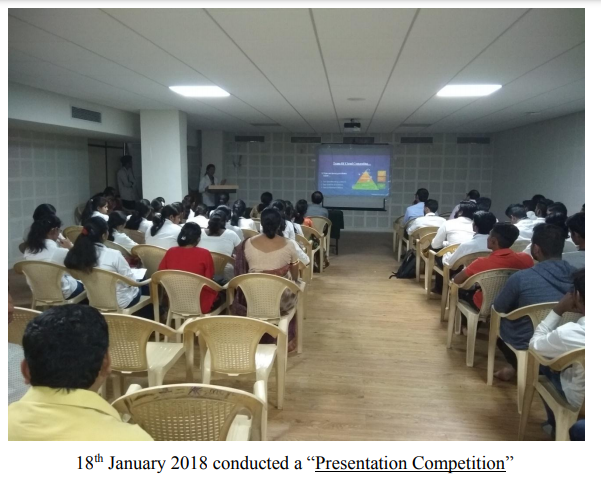
|
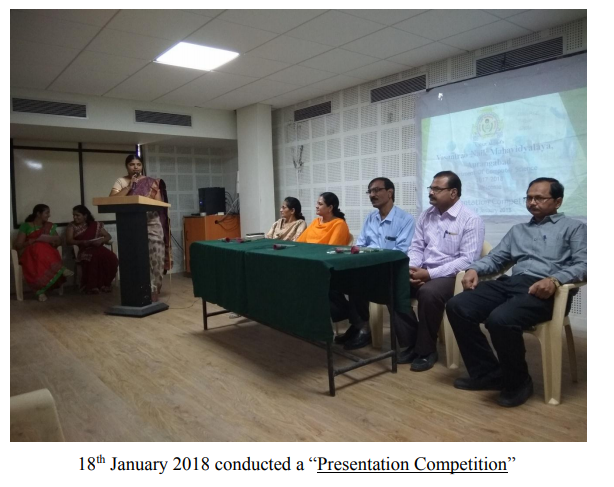
| 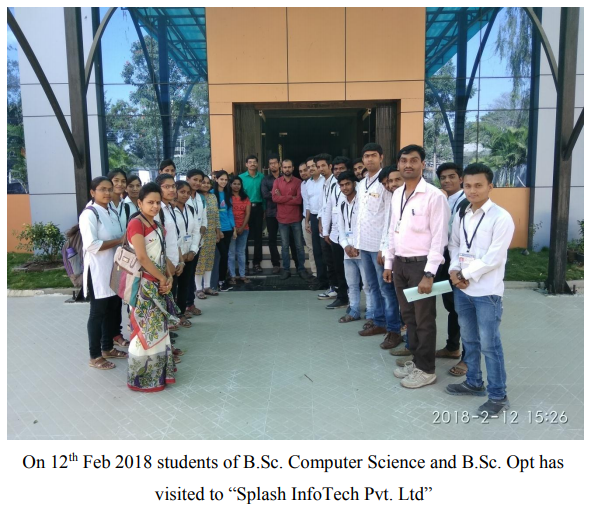
|
Mr. R. R. Jadhav
|
 Alumini
Alumini
About our alumini
Zoology Department
 Certificate Course
Certificate Course
About Certification Courses
| Our programs involve interdepartmental, multi-institutional and inter-institutional collaboration and have attracted faculty members, undergraduate and graduate students from all over the world. Students may pursue full-time or part-time study leading to a Diploma in Computer Science or to B.Sc., M.Sc., or Ph.D. degrees. |
| The Department currently offers B.Sc., B.Sc. Honours, B.Sc. Computer Science/Mathematics, B.Sc. Honours Computer Science/Mathematics, B.Sc. in Software System Development degrees in its undergraduate program, and M.Sc. and Ph.D. degrees in its graduate program. |
Contact with Us..!








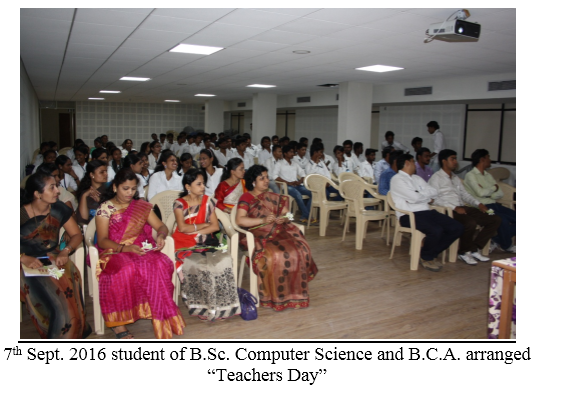




 B.Sc.-Zoology
B.Sc.-Zoology